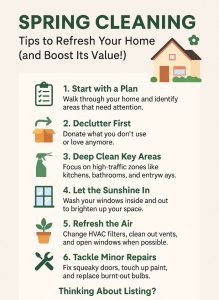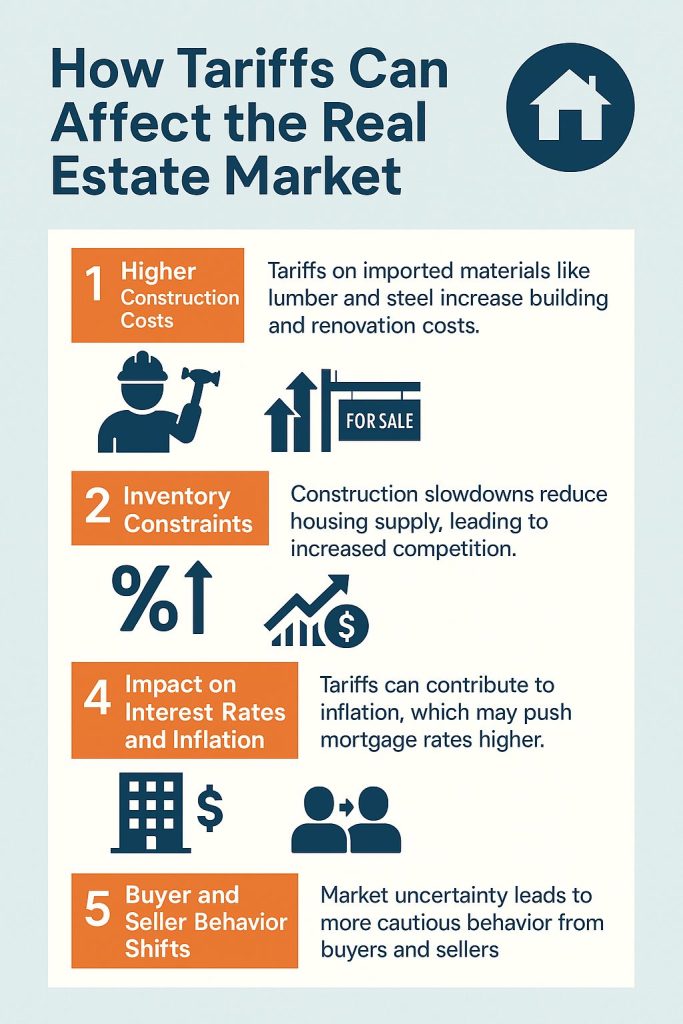
🏡 Spring Cleaning Tips to Refresh Your Home (and Boost Its Value!)
Spring is here, and there’s no better time to give your home a little extra love! Whether you’re preparing to list your house or just want to enjoy a cleaner, more organized space, spring cleaning is a great way to reset.
As a local Realtor who’s helped many families find their dream homes in the St. Croix Valley, I’ve seen firsthand how a clean, well-maintained house can stand out in the market—and feel amazing to live in, too.
Here are a few simple, high-impact ways to freshen up your space this spring:
🌿 1. Start with a Plan
Walk through your home with a notebook and jot down which areas need attention. Prioritize spaces that get overlooked during your usual cleaning routine—like baseboards, light fixtures, and windows.
🧽 2. Declutter First
Before you clean, take time to declutter. Donate what you don’t use or love anymore. A tidy space not only feels better—it makes rooms look larger and more inviting, which is key if you’re thinking of selling.
✨ 3. Deep Clean Key Areas
Focus on high-traffic zones like:
-
Kitchens – Clean inside appliances, wipe down cabinets, and refresh your backsplash.
-
Bathrooms – Scrub grout, descale showerheads, and replace worn-out caulking.
-
Entryways – First impressions matter! Shake out rugs and clean door hardware.
🪟 4. Let the Sunshine In
Wash your windows inside and out to let natural light shine through. It brightens your space and lifts the mood—something buyers and homeowners alike will notice right away.
🧼 5. Refresh the Air
Change HVAC filters, clean out dryer vents, and open windows when weather allows. Add a few houseplants or natural air fresheners for an extra boost of freshness.
🛠 6. Tackle Minor Repairs
Now’s the time to fix squeaky doors, touch up paint, and replace burnt-out lightbulbs. Little things go a long way toward creating a polished, move-in-ready vibe.
💡 Thinking About Listing?
If selling is on your spring to-do list, I’d love to help you make a smooth transition. From staging tips to local market insights, I’m here to walk with you every step of the way.
Let’s connect and make your real estate goals bloom this season!


 Facebook
Facebook
 X
X
 Pinterest
Pinterest
 Copy Link
Copy Link










